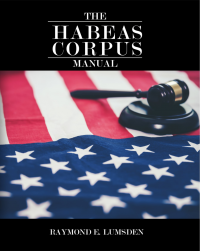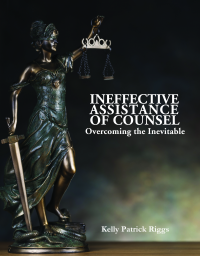Getting Away with Elderly Abuse and Medical Malpractice
Nationally known publishing company stands its ground in the fight against elderly abuse. It is common-enough knowledge that the American Criminal Justice system now holds more debilitated seniors than any nursing home in the nation, and their abuse starts with being denied their right to be relief from captivity. It is also recognized that mass incarceration did not end with the First Step Act. Nor did the prison system automatically review the cases of all eligible prisoners upon becoming qualified. In response Freebird Publishers released their most recent legal self-help book, Post-Conviction Relief: Second Last Chance.
People age 50 and older are the fastest growing age group in prison today. Older prisoners consume disproportional health care resources of correctional institutions. Long histories of no medical care, alcohol and substance abuse, and poor diet contribute to the risk for chronic conditions, which often lead to functional impairments, and require careful and deliberate management strategies. This is, however, not that different from the "free world," where chronic illnesses account for the greatest cost burden and disability in the United States. Thus, older prisoners need more care than the average prison medical providers are willing to provide.
Outside prison walls, elderly men and women of all socioeconomic and ethnic backgrounds are vulnerable to mistreatment, which most often goes undetected. For many elderly victims of abuse, the hospital is the only potential site for outside contact and support. In a study at The Mount Sinai Hospital in New York City, 182 cases were identified and assessed over a 2-year period. More than 50% of these cases involved patients with a diagnosis of memory impairment. Five percent of the cases involved a long history of domestic violence. In most cases a family member was identified as the abuser, and in many instances the victim either denied the suspected abuse or tried to rationalize the behavior of the abuser. Patients were afraid of reporting abuse or changing their situation, despite being informed of possible resources.
The abuse does not end at the gate. Once an elderly person enters the prison system, they are evaluated by a medical department that is staffed mostly by guards with no medical training. The ongoing effects of elderly abuse is then compounded by medical malpractice and neglect. Additionally, over the last ten years prison wardens who are aware of this travesty have been found to be deliberately indifferent.
Thus, unsurprisingly, the two most common claims for post-conviction relief are medical malpractice, an eighth amendment violation, and false incarceration. Both of which widely affect the elderly prison population. Although these two claims are serious and can be probated, the courts around America are reluctant to provide counsel to deserving prisoners, leaving them to suffer from undeserved abuse once again.
Post-conviction relief is a complex procedure that allows the defendant in a criminal case to bring more evidence or raise additional issues in a case after a judgment has been made (post-trial). With valid grounds, post-conviction relief can help a prisoner obtain a fair resolution in their case, if they understand the court's procedures. Most successful post-conviction cases are initiated by prisoners and litigated by qualified attorneys.
Without professional counsel a prisoner, who most often has less than a high school education, stands little chance of navigating the court's complex legal procedures. With no understanding of law prisoners often fail to stimulate the court to order a prison to provide medical care or justice.
In answer to this growing problem, Freebird Publishers continually strives to produce and distribute easy to read and follow legal self-help books that are geared for the use of prisoners and their families. Their publications cover a wide range of issues, from early release, from both state and federal prison to medical torts and malpractice. Freebird Publishers has and continues to consult some of the most successful advocates in the system to stay on top of the rapidly evolving legal issues that plague our elderly prison population of today.








































Comments